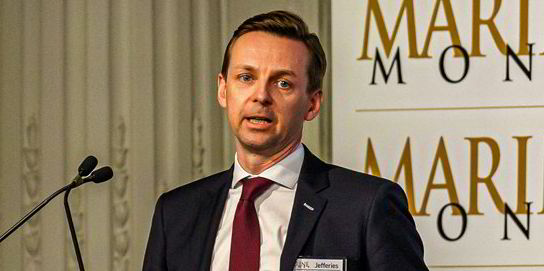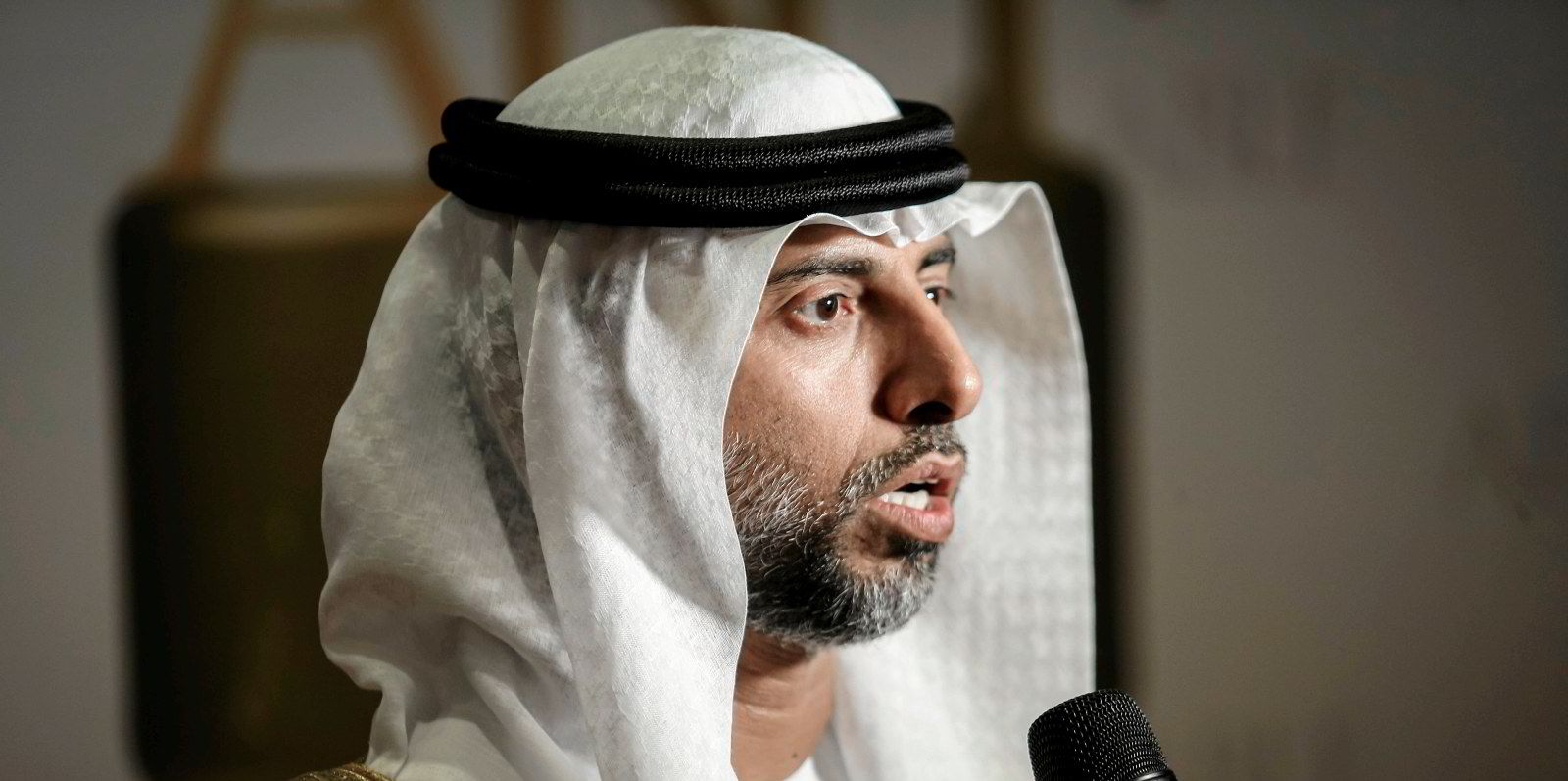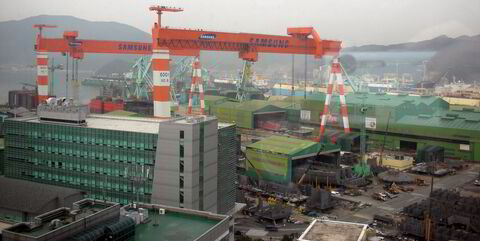Should shipowners take it easy with dividends and focus more on setting aside cash for newbuildings?
Dividends have been a hot topic following remarks by Deutsche Bank analyst Chris Robertson, who thinks shipowners should continue to pay out but prioritise reserving cash for fleet renewal in the years ahead.
Golden Ocean chief executive Ulrik Andersen told TradeWinds: “You can renew your fleet and pay out dividends. It is a matter of balancing the capital allocation.
“We have been renewing our fleet while we have been paying out dividends. The strategy has been to sell older, high-emitting vessels and recycle the profit from that into newbuildings or modern ships on water.”
Golden Ocean has acquired 34 vessels and paid out close to $900m over the past two years, he added.
The company still has older tonnage to sell, but the market has become too expensive to buy and “perhaps too premature to sell”.
“We are optimistic there are more legs in the asset prices over the next 12 months,” he said.
Golden Ocean, which counts John Fredriksen as its biggest shareholder, posted a net deficit of $8.8m for the first three months of 2023, its first quarterly loss in three years. But that did not stop the company from distributing $0.10 per share.
“It’s always disappointing to book a loss,” Andersen admitted. “But it was a weak quarter for freight, driven by an economic slowdown, but also the seasonal slowdown. We also had some not-insignificant impairments, which, without them, would have taken us to a small positive [profit].
“Either way, it was a satisfying quarter overall, I will say, despite the loss. We have outperformed the market by about $5,000 per day per vessel across our fleet and we feel we are well positioned to capture the upside that we expect for the remainder of the year.
“In addition, we concluded the acquisition of six newcastlemaxes at what looks like good timing. All of them will be delivered within a month and start contributing to our bottom line.”
Golden Ocean was hit with an $11.8m impairment charge on the sale of two older capesizes with particularly high book values during the first quarter. Andersen said further impairments are unlikely to follow in the future.
“Impairments are, at the end of the day, a non-cash event and it can’t stand in the way of doing the right thing — and the right thing was to sell these vessels,” he said.
A lot has changed since Andersen joined the company in 2020.
“It has been an exhilarating three years, for sure,” he said.
“We have made a lot of changes. We pulled out of the [Capesize Chartering Limited] pool. We have discontinued our in-house technical management. We have stopped the third-party services we carried out for other companies. We embarked on digital transformation to improve ship performance management. All in order to strengthen the operating platform.”
Golden Ocean Group recorded a net loss of $8.8m for the first three months of this year, equivalent to a loss of $0.04 per share.
This is down from a profit of $125.3m a year earlier, when basic earnings per share were $0.63.
The Oslo and Nasdaq-listed company will pay a dividend of $0.10 per share for the quarter.
Its capesizes earned an average time charter equivalent rate of $13,620 per day, while its panamax and ultramax bulkers earned $16,630 per day.
For the current quarter, the company has covered 74% of its available capesize days at $20,010 per day on average. For panamaxes, 76% of its days have been booked at $14,600 per day.
“At the same time, we have grown the fleet by 34%, which has made us — despite having also sold 14 vessels — among the largest US-listed shipowners. Certainly, the one with the most modern and fuel-efficient fleet.”
The big challenge now, of course, is decarbonisation. Golden Ocean has introduced what Andersen called “ambitious” targets — a 30% reduction in its vessel emissions by 2030 and net-zero emissions by 2050.
“I think we are the first listed dry cargo owner to have done that,” he said.
“I think that’s an important signal that we’re sending out — that we are serious about actually bringing down our emissions and focusing on operating a modern, fuel-efficient fleet.”
The other challenge is controlling costs in an environment of high inflation and rising interest rates. The shipowner’s cash breakeven for its fleet — which it claims is the lowest among its peers — has been one of its not-so-secret weapons in maximising net earnings. But even Golden Ocean is feeling the pressure.
“The cost of capital is increasing and that is sort of filtering through, ultimately hitting our cash breakeven. However, we have done a couple of refinancings at the same time at very low interest levels, lower than the debt facilities they replaced, which has worked the other way,” Andersen said.
“We try to — where we can — lower costs, but we are of course feeling the pressure as well. We have maintained our industry-low cash breakeven across the fleet around $14,000 per day, which is all inclusive of everything, also amortisation.”
Golden Ocean thinks the market outlook looks positive for bulkers in 2023, especially for capesizes.
Demand for the ship type correlates closely with economic growth in China and its imports of hard commodities.
“The rebound in China is fragile, certainly, but it is on and we think it has enough momentum to drive particularly the capes to a reasonable level for this year,” Ulrik Andersen said.
“We are concerned about the persistent rumours of a cap on steel production. There is a pretty big difference in outcomes for freight, if you have the World Steel Association’s 2.5% growth [in Chinese steel production] versus a cap on 2022 levels.”
It will also help this year as smaller bulker segments revert to more normalised trading patterns, without the additional support they have received in moving containers. Then there is the much talked-about low orderbook for capesizes, which will keep fleet supply low for the foreseeable future.
Capesize and panamax rates suffered from the usual seasonal slowdown in the first quarter, which was compounded by a slower-than-expected economic rebound in China.




